Toyo Tires Posts Record Q1 Sales Despite Profit Pressure From Raw Materials, Forex
- By Sharad Matade
- May 13, 2025
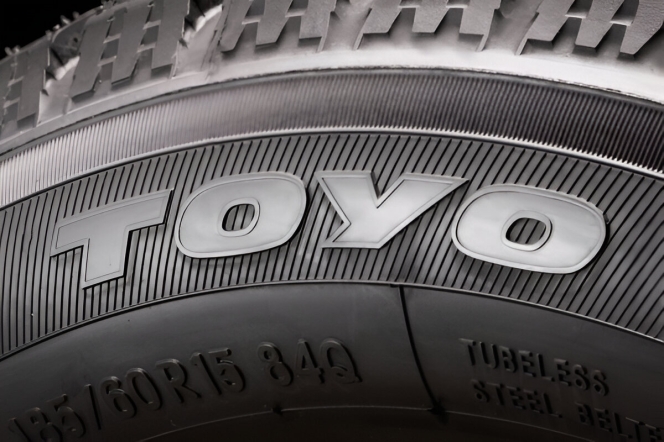
Toyo Tires reported record first-quarter sales of 135.5 billion yen ($880 million), marking a 6.2 percent increase year over year and reaching its highest level since adopting its current accounting period in 2013. Despite the top-line growth, operating income fell 13.7 percent to 22.4 billion yen due to rising raw material costs and foreign exchange headwinds.
“Strong sales of large-diameter tyres in North America drove revenue growth but couldn’t fully offset higher production costs,” said the company in its earnings statement. The Japanese tyre maker saw a 7.7 percent sales increase in North America, which remains its largest market.
Profit Squeeze
Ordinary income plunged 42.7 percent to 18.3 billion yen, while profit attributable to owners dropped 41.4 percent to 13.5 billion yen, primarily due to foreign exchange losses from the yen’s appreciation. The Japanese currency strengthened to 154 yen per dollar during the quarter, compared to 146 yen in the year-ago period.
The company maintained its full-year forecast, projecting annual sales of 585 billion yen, up 3.5 percent from FY2024. Operating income is expected to reach 85 billion yen, down 9.6 percent , with operating margin declining to 14.5 percent from 16.6 percent last year. The annual dividend forecast is 125 yen per share, up from 120 yen in the previous fiscal year.
“Assuming tariff impact can be absorbed with appropriate measures, earnings forecasts for FY2025 remain unchanged,” the company stated, maintaining its dividend payout ratio target of 30 percent or higher.
Production and Expansion
The tyre maker plans to increase production volume by 6 percent in FY2025 compared to the previous year, with significant growth in both Japanese and European operations. First-quarter global production volume was 59,100 tons, representing 98 percent of the previous year's level.
Capital investment for FY2025 is projected at 35.6 billion yen, up from 25.6 billion yen in FY2024, signalling continued expansion despite market headwinds. The company has invested 194 billion yen in capital expenditures over the past five years.
Market Conditions and Raw Materials
Raw material costs continue to pressure margins, with the company projecting a negative impact of 10.5 billion yen for FY2025. Natural rubber price increases are expected to cost 7.4 billion yen, while petroleum products will add 2.0 billion yen in costs, and other materials will contribute 1.1 billion yen to the cost pressure.
First-quarter sales volume showed strong recovery in the Japanese replacement tyre market, reaching 97 percent of the previous year’s level. In comparison, North America demonstrated robust growth at 105 percent year-over-year.
Product Innovation and Corporate Initiatives
The company recently launched premium tyres for high-roof kei cars in Japan with enhanced wet grip performance. These tyres feature eco-friendly materials that improve wet braking performance by 12 percent while reducing rolling resistance by 9 percent.
In March, the company introduced new SUV tyres designed specifically for quiet city driving that meet the “Low Car Exterior Sound Tyres" voluntary standard established by the Japan Automobile Tyre Manufacturers Association.
Shaping The Future Of Manufacturing
- By TT News
- December 15, 2025
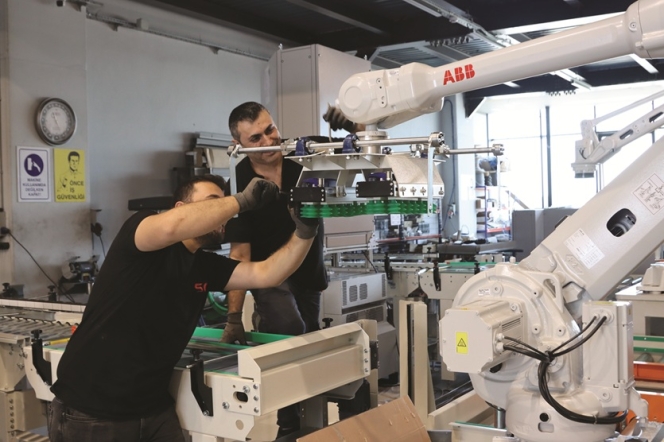
INTELLIGENT AUTOMATION MEETS ENGINEERING EXCELLENCE WITH TROESTER ROBOTICS
In today’s evolving industrial ecosystem, manufacturing is no longer just about physical output. Modern factories must simultaneously manage a range of challenges – from efficiency and flexibility to sustainability and quality control. Traditional automation systems often fall short, while smart, integrated and data-driven solutions are now the foundation of next-generation production strategies.
TROESTER Robotics emerged from this vision, formed in 2025 through a strategic acquisition. That year, TROESTER GmbH & Co. KG, a renowned German engineering company with over 130 years of heritage, acquired Turkey’s dynamic automation firm SC Otomasyon. This union brought together two strengths: deep engineering experience and practical implementation agility.
What resulted was more than just a new company – it became a transformative platform that doesn’t just produce automation systems but redefines the way production itself is designed and executed.
Today, TROESTER Robotics delivers durable, scalable and intelligent automation solutions across industries, with a strong focus on rubber and tyre production. These systems are built to improve precision, consistency, safety and operational sustainability.
Founded in 1892 in Hannover, Germany, TROESTER has become a global benchmark in the field of rubber, cable and plastics processing. With extrusion systems, full-scale production lines and advanced process engineering, TROESTER is known worldwide for engineering excellence and trust.
SC Otomasyon, on the other hand, earned its reputation in Turkey through flexible project execution and on-site know-how – delivering tailored automation projects in sectors such as glass, automotive and end-of-line applications. Notably, its success in rubber and tyre manufacturing drew international attention.
Through the acquisition and integration under TROESTER Robotics, this unique combination of capabilities has been elevated to serve global markets. It reflects the perfect synergy of depth and agility, tradition and innovation and global vision with local adaptability.
AUTOBOOKER: A NEW STANDARD IN TREAD HANDLING
Autobooker, developed by TROESTER Robotics, directly addresses a common bottleneck in tyre production: the handling and stacking of precut rubber treads.
Due to the nature of rubber – its sticky surface, flexibility and weight – manual operations are not only labour-intensive but also prone to inconsistencies such as misalignment and uneven stacking. This leads to increased cycle times and compromised product quality.
Autobooker was designed to solve these challenges in a compact robotic cell that automatically identifies and handles treads of various profiles and sizes while delivering repeatable and balanced stacking with minimal operator intervention. The system easily integrates into existing production lines with its compact structure and adapts to different production scenarios without the need for reprogramming. Most importantly, Autobooker ensures not just speed but precision and consistency in its operations.
Unlike traditional systems, Autobooker is not just a robot – it is a stabilising element of the production line, enabling a more consistent, reliable and efficient flow.
BEYOND MACHINES: AN INTELLIGENT AUTOMATION ECOSYSTEM
Autobooker is just one part of the broader technology ecosystem developed by TROESTER Robotics. Across various stages of tyre and rubber manufacturing, the company continues to build systems that prioritise productivity, safety and quality. One of the systems is Green Tyre Spraying Cells, which are robotic spray units that ensure uniform surface coating, reduce VOC emissions and minimise operator exposure. The Robotic Creel Loading Systems are designed to automate the placement of heavy steel and cord rolls; these systems significantly improve ergonomics and workplace safety.
Another solution, the End-of-Line Palletizing Solutions, enables fast, reliable palletising of finished tyres with minimal human involvement, increasing throughput and reducing handling errors. All TROESTER Robotics systems are equipped to communicate with MES and ERP platforms, enabling smart factory integration. This ensures the production process is not only automated but also traceable, measurable and optimised in real time.
DELIVER A VISION, NOT ONLY MACHINES
At TROESTER Robotics, automation is not just about hardware – it’s about engineering precision, industry insight, global standards and future-focused thinking. Every system installed is designed to standardise quality, minimise waste, reduce operator dependency and boost competitiveness while laying a solid foundation for digital transformation.
For TROESTER, every solution is a chapter in its customer’s production story. The company says, “We’re not just writing that story for today – we’re building it for the factories of the future.”
AGU Adds Vredestein To Premium Cycling Portfolio
- By TT News
- December 15, 2025
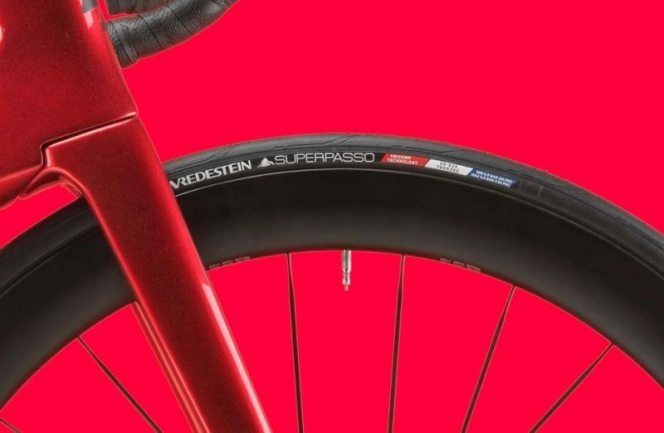
AGU is enhancing its sports and urban cycling offerings in the Benelux region through a new partnership with the premium tyre brand Vredestein. This move aligns with AGU's strategic shift towards a more streamlined and high-quality portfolio, emphasising brands that deliver tangible value to retailers. A key element of this approach is AGU's commitment to providing dedicated account management for each store, which has already secured renewed confidence and agreements from numerous dealerships for 2026. Integrating Vredestein further reinforces this positive trajectory.
The partnership is a strong fit, founded on shared values including a dedication to quality, reliable performance and a focus on modern mobility needs like comfort and safety. Both brands bring relevant expertise for sporty and urban cyclists, along with a sustainable vision for the future of cycling. For AGU, Vredestein elevates the portfolio's quality and focus, while Vredestein gains extended reach and a stronger presence in key segments, backed by AGU's proactive sales network. Ultimately, this collaboration is centred on mutual growth and providing superior daily mobility solutions for cyclists.
Andy Vrooland, Commercial Director AGU Wholesale, said, "With Vredestein, we are strengthening our position in the sports and urban segment. The brand offers grip, security and performance, exactly what our dealers are looking for."
Olaf de Jong, Account Manager Vredestein, said, "Our cooperation with AGU fits seamlessly with our ambition to continue to grow in the Benelux."
- NEXEN TIRE
- One Tire
- Localisation
- EV ROOT
- NEXEN N’FERA Sport
- NEXEN N’PRIZ S
- NEXEN Winguard Sport 3
- NEXEN ROADIAN ATX
- NEXEN N’BLUE 4 Season 2
NEXEN TIRE Expands Localised Product Strategy
- By TT News
- December 15, 2025
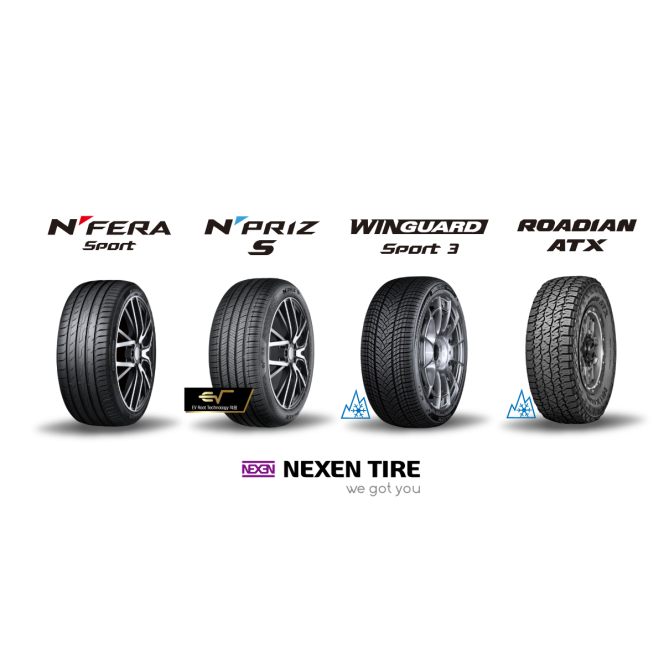
NEXEN TIRE is advancing a sophisticated global strategy centred on localised product development to deepen its market penetration. The initiative moves beyond a one-size-fits-all approach by tailoring tyre offerings to the specific driving conditions, regulatory environments and consumer preferences in each major region. This is underpinned by a unifying ‘One Tire’ corporate strategy, which seeks to engineer a cohesive product lineup that delivers high performance across both traditional and electric vehicles. A key component of this is the EV ROOT technology, designed to enhance stability, mileage, braking and noise reduction for a comprehensive driving experience.
The company’s regional adaptations illustrate this focused approach. In the United States, NEXEN TIRE is broadening its portfolio with performance-oriented tyres like the N’FERA Sport and an upcoming all-season model, the N’PRIZ S, noted for fuel efficiency. Complementing these product introductions, the manufacturer is expanding its distribution partnership with Walmart to ensure wider availability of key tyre sizes, directly aligning supply with local demand. In Europe, regulatory shifts towards stricter winter tyre standards have prompted the launch of the new Winguard Sport 3 winter tyre and an expansion of fitments for its all-weather N’BLUE 4 Season 2 line. Simultaneously, in Australia, the company has introduced the ROADIAN ATX, a versatile tyre crafted for the popular SUV and pickup truck segments, capable of handling both on- and off-road terrain prevalent in the market.
Through these concerted efforts, NEXEN TIRE is not merely selling products internationally but is systematically integrating global design philosophy with regional customisation. This dual focus on unified performance standards and localised portfolio expansion sharpens the brand’s competitive edge and strengthens its connection with diverse consumers worldwide.
John Bosco (Hyeon Suk) Kim, CEO, NEXEN TIRE, said, “NEXEN TIRE is continuously expanding its global market competitiveness through a product strategy of precisely reflecting local demand characteristics and consumer needs. Going forward, we will further strengthen our foundation for global growth by advancing innovations, especially for our EV ROOT technology, and enhancing our locally customised product portfolios.”
Making The Tyre Industry Truly Sustainable
- By TT News
- December 15, 2025
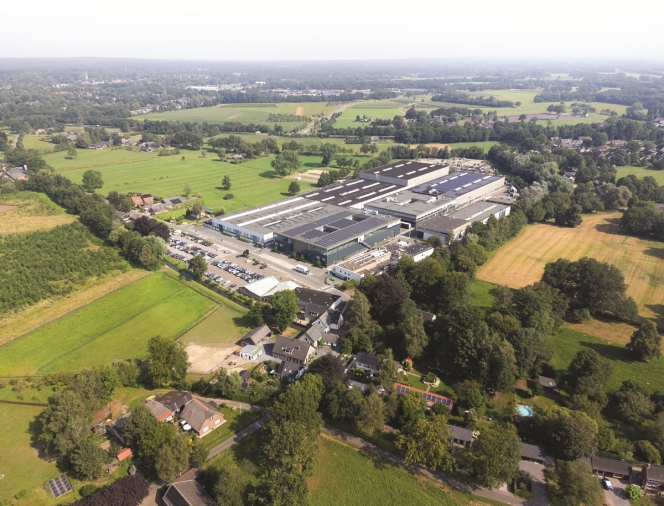
Harm Voortman, Chief Executive of VMI Group, explains how his company is mobilising its resources to cut energy use and reduce emissions, together with other forms of pollution in its strategic drive to make the business more sustainable and environmentally responsible. Having just been awarded the prestigious EcoVadis Gold Award in recognition of the progress made already, VMI is determined to keep enhancing its own performance while helping customers worldwide achieve better sustainability.
A STRATEGIC INDUSTRY
Tyres are essential for the modern economy. That’s a simple fact of life because much of the global economy depends on motor vehicles, and all those vehicles run on tyres. Two billion tyres are made every year across the world, and a high proportion of these are built on tyre building machines designed, built and supplied by VMI.
There is, however, another side to this story of economic and manufacturing efficiency. Those two billion new tyres every year also translate into something like six million tonnes of microplastics. These highly polluting particles end up in the environment – much of it in the oceans of the world. This means that one of the essential drivers for the global economy is also a major contributor to pollution and environmental damage.
The big question for all of us is how can we maintain the benefits of the tyre industry while also finding ways to reduce the harms it causes. In other words, how can we make it transformationally more sustainable?
OUR GREATEST CHALLENGE?
Sustainability is “not just a nice to have” it is an essential and non-negotiable requirement for every manufacturer and operator of automotive products.
Motor vehicles still largely use fossil fuels and require roads that must be built across the countryside, then constantly maintained and upgraded. Inevitably, this causes environmental damage.
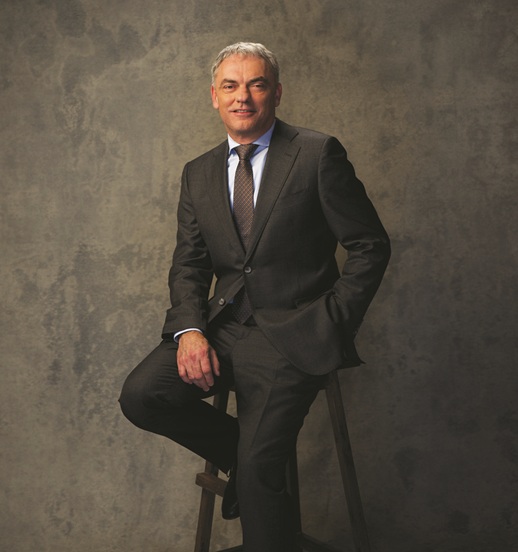 Tyres are made from increasingly complex blends of materials, which are used to make the novel compounds required to meet the changing demands of the automotive industry. This requires a huge amount of energy and a continuous stream of raw materials.
Tyres are made from increasingly complex blends of materials, which are used to make the novel compounds required to meet the changing demands of the automotive industry. This requires a huge amount of energy and a continuous stream of raw materials.
The move to electric vehicles (EVs), a key factor in making the industry more sustainable by reducing reliance on fossil fuels, also has one major disadvantage. EVs are often heavier than the conventional vehicles they replace. That leads to greater wear and tear on the road surface, generating a higher level of particulates that are harmful to the environment and to human health.
The need to make the entire industry less environmentally damaging, more efficient and sustainable is a challenge that every participant – car and truck manufacturers, energy companies and, above all, tyre builders – have no choice but to face. Here, as in so many other ways, VMI is leading the way.
COMMITMENT TO INNOVATION
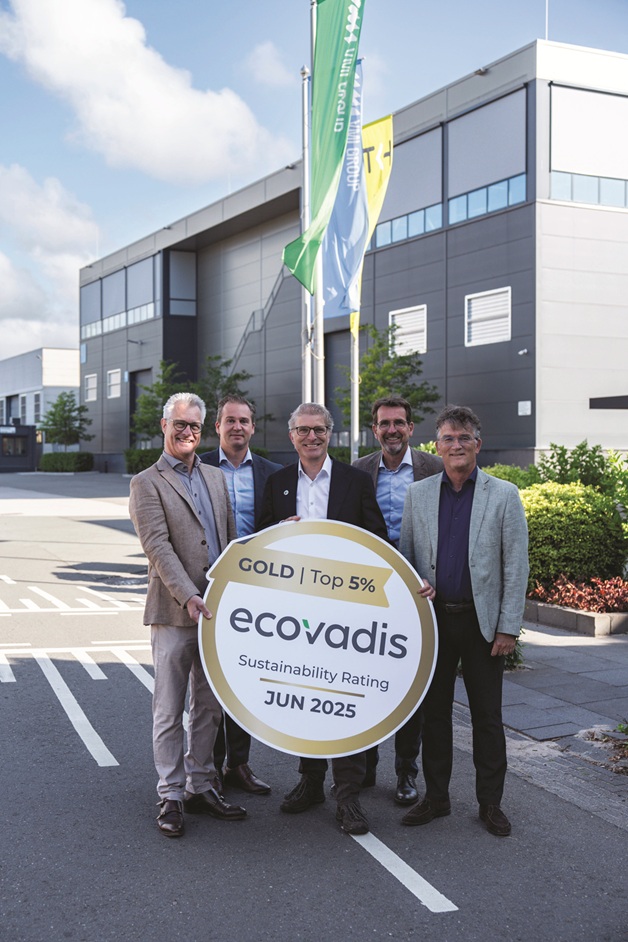 VMI has become a strong and respected global player because it is an innovator. Many of the concepts that have transformed the tyre industry were developed by VMI, including ‘hands off, eyes off’ automation, advanced visions systems and now the use of AI to help eliminate errors and optimise production.
VMI has become a strong and respected global player because it is an innovator. Many of the concepts that have transformed the tyre industry were developed by VMI, including ‘hands off, eyes off’ automation, advanced visions systems and now the use of AI to help eliminate errors and optimise production.
Yet perhaps the most important application for innovation today is in sustainability. Fresh ideas in this field lead to better environmental performance, assured regulatory compliance and to better commercial results as well. VMI believes that doing the right thing for the planet can also lead to the best outcome for shareholders.
The drive for enhanced sustainability has become a major focus for all VMI’s employees: one of its most striking features is how it involves everyone, at all levels and in all disciplines. This has become a personal goal, with every member of the wider VMI team committed to looking for new and better ways to reduce the environmental impact of their work.
At all times, the aim is to look for new methods that can deliver a real win-win to manufacturers and customers.
There is a continuing search for ways to use less energy in production, reduce waste and scrap, while eliminating errors – thereby cutting down on the amount of materials used. Reducing emissions and pollution also leads to business benefit, because less energy used means lower costs. Less scrap and waste leads to improved efficiency and, once again, cuts costs significantly.
Tyre manufacturers understand better than ever that commitment to sustainability is not just responsible, not just essential for regulatory compliance and being a good corporate citizen: it also ends up being good for shareholders through higher profits and better brand reputation.
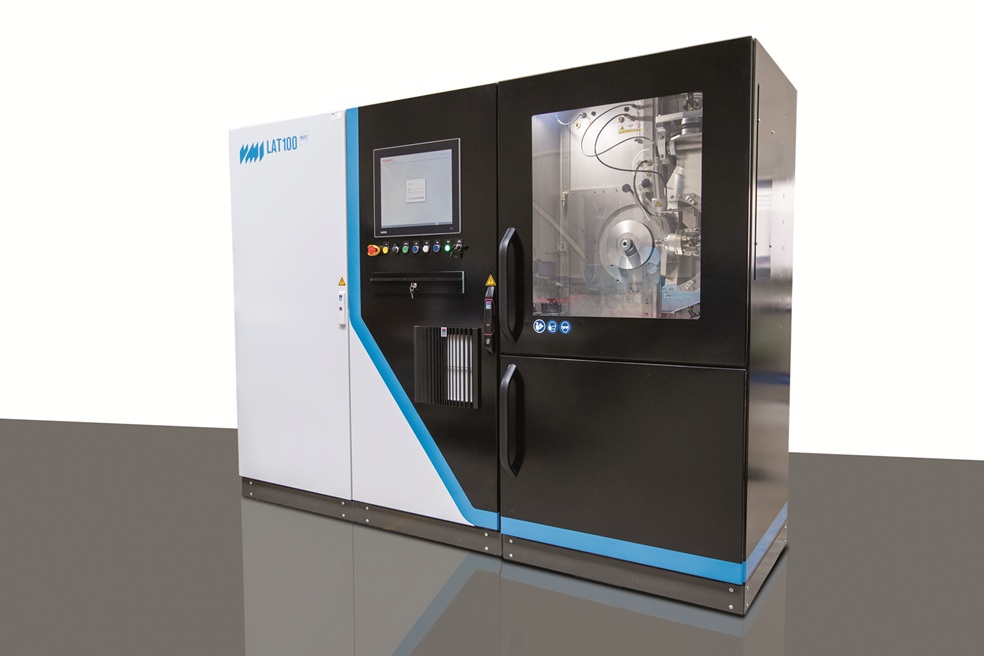
KEY FOCUS AREAS FOR SUSTAINABILITY IMPROVEMENT
VMI’s policy focuses on four main areas of activity:
- Energy and emissions
- Efficient use of materials
- Eliminating errors and waste
- Whole lifecycle management
This strategic approach has delivered measurable benefits to VMI and also helps customers to improve their own performance. The positive impact on environmental performance is also now a matter of public record.
So how can other manufacturers learn from the approach taken by VMI? Let’s look at this in more detail.
ENERGY AND EMISSIONS
Improved energy efficiency does not usually make progress through a few big breakthroughs: instead, it’s the sum total of small improvements made to every stage of every process, and that involves the work of every employee in every department. From the design stage on, energy efficiency is a key factor in new concepts, but, at the same time, each team of engineers is accountable (and rewarded) for identifying ways in which their objectives can be reached more efficiently by using less energy.
This process starts very early. VMI sponsors educational programmes designed to build energy consciousness into future engineers from very early on and each team is empowered to scrutinise their processes critically to develop better methods. Above all, VMI and other responsible manufacturers use the regulatory system not as a painful duty to be obeyed but as a useful incentive for better performance.
Just as every employee has to be engaged in the drive for sustainability, VMI has taken the view that every supplier and partner also needs to be actively mobilised to enhance every aspect of sustainability performance. VMI’s vision is closely aligned with the EU’s adoption of the GHG Protocol’s Scope 1, 2 and 3 frameworks, which require manufacturers to account for their entire value chain emissions, not just those under their direct control.
Scope 1 covers direct emissions, Scope 2 includes indirect emissions from purchased energy and Scope 3 encompasses all other upstream and downstream indirect emissions, obliging manufacturers to take responsibility for the environmental impact of their entire value chain while driving sustainability across their supply chains.
By working actively with suppliers on every aspect of joint working, it is possible to enhance everything from component design, fabrication methods, transportation efficiency and even packaging to ensure progressive and measurable improvements. By making this not simply a ‘box ticking’ exercise but a mission that engages every participant, extraordinary improvements have been – and will continue to be – delivered.
EFFICIENT USE OF MATERIALS
One of the most important aspects of tyre design is the growing use of advanced new materials designed to reduce weight without any loss of tensile strength or safety performance, cut down on rolling resistance, reduce particulate emission and enable higher efficiency in operation. The rise of EV use is a key factor in driving this kind of research as EVs are often heavier, have different driving characteristics and are moving towards a self-driving future.
Every tyre manufacturer is now committing considerable resources into developing materials with precisely calibrated operating characteristics. They also need to deliver specialised tyres in smaller batches then before without waste, on time and efficiently enough to make a profit even from very short production runs.
VMI focuses on developing and testing new compounds in the lab without the need to rely only on trial and error. Lab testing is not a new technique – the VMI LAT100 tyre tread compound tester was first developed some decades ago – but use of advanced simulation software now means lab testing can be embedded within the tyre design and development process as never before. New compounds can be made, tested, evaluated, fine-tuned and tested all over again within (using a term borrowed from the software industry) a ‘DevOps’ approach to manufacture.
In this concept, there is no firm line between disciplines (design, build, test, core engineering…) because the entire end-to-end process is treated as an integrated whole. The tyre industry knows that new and higher performing, more sustainable compounds are a core requirement for staying competitive into the future. VMI’s integrated, lab-focused approach can fast-track new concepts and, used with new developments in continuous mixing and extrusion, this is a practical way to accelerate development without significant environmental impact.
ELIMINATING ERRORS AND WASTE
Tyre building, even with automated production systems, requires a complex blend of processes. In practice, it is as if a series of ‘just in time’ activities co-exist within a single factory with different machines, often supplied by different manufacturers, fabricating components, many of which are then moved to where the next process takes place.
There is huge scope for wastage in the average tyre factory as materials are loaded, unloaded, moved by truck or automated vehicle, put into storage until needed, then reloaded onto another machine, processed, stored again…
Innovators across the industry understand that the sheer complexity of this approach limits both the energy savings and emissions reduction that can be achieved – for the moment. Yet new technologies are being used today to make significant progress possible. Again, VMI has been a major innovator in this field as well.
OPEN SIDE BAR
There are many ways in which taking an integrated view of tyre building processes can bring greater efficiency with better sustainability performance to the whole process. VMI has taken aspects of its UNIXX single cell technology to deliver standalone solutions that can be used with a conventional TBM to streamline conventional methods, leading to greater efficiency, reduced footprint, drastically lower energy use and better sustainability performance.
The UNIXX Beltmaker, for example, cuts out the need for a separate calendering line with the massive energy use and huge space required. By using UNIXX Beltmaker, and considering use of continuous extrusion Strip Winding, it is possible not just to eliminate process stages but accelerate production and build smaller batches without damaging profitability. All this can be achieved with lower energy use, reduced emissions and much lower wastage.
CLOSE SIDE BAR
VMI introduced vision systems to measure the placement of materials as they enter a MAXX automated Tyre Building Machine (TBM). Now these increasingly advanced vision systems are being matched with emerging AI to improve other aspects of performance. This enables automated placing, use of pattern recognition and machine learning (ML) to deliver accurate cuts and AI algorithms to ensure higher efficiency in materials usage, leading to a major reduction in all aspects of wastage due to errors.
VMI, like other businesses in the wider industry, is investing heavily in specialised software development and management, with AI now forming a major part of its solutions.
Beyond the hype caused by GenAI, we can see that the combination of sensors, pattern recognition, ML and data analytics is a proven AI combination that delivers higher sustainability through reduced waste, scrap, rework and energy investment. The intelligence of each system is now greater than ever and the sustainability benefits are increasing in step.
WHOLE LIFECYCLE MANAGEMENT
VMI moved from building standalone machines some years ago and now specialises in Production Platforms, which are designed to be updated regularly over an extended lifecycle. VMI tyre building machines are designed to operate at maximum efficiency over a very long lifecycle (between 10 and 20 years is normal), and the Platform approach adds value by making it easier to keep machines operating at best practice level. They are designed to make it easy for higher performance components, assemblies and upgrades to be retrofitted over the lifetime of the product.
The goal now is to make sure that the TBM at the heart of any production facility lasts for longer, continues to meet sustainability goals, remains highly efficient and is always at best practice level. Yet, that is not the whole story. VMI is also aware that end-of-life is part of the process as well and that all systems must be designed for safe recycling (including extended life for specific components) and environmentally responsible disposal.
End-of-life management has to be designed into a product from the very start. This is now a basic requirement for all VMI machines.
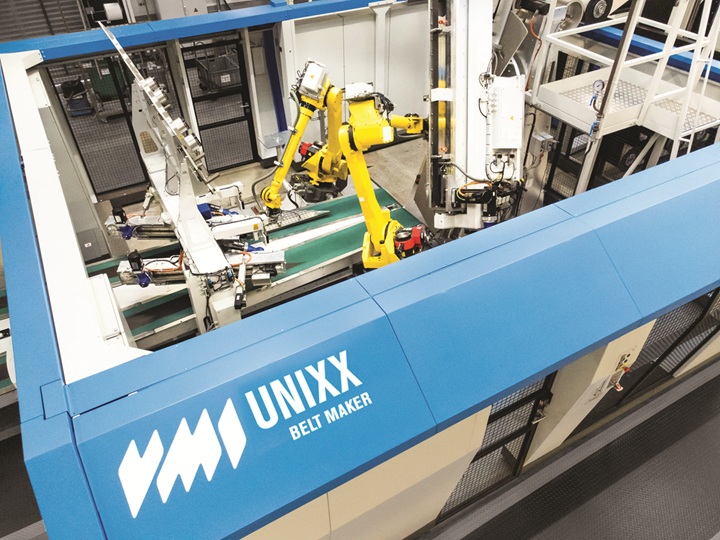
WHAT ABOUT THE FUTURE?
The tyre industry is essential for almost all aspects of economic life. The world economy runs on the road, and every vehicle runs on tyres. This simple truth means that every method we can find to improve performance in terms of efficiency and sustainability is a benefit to the world.
This is why the VMI approach matters. It was VMI that enabled the whole industry, not just the ‘Tier Ones’, to use the most advanced, automated systems in their daily activities. Others have followed – yet VMI’s pioneering work in creating and making available automated production systems, even to relatively small companies, has been transformational.
Today, MAXX for passenger tyres and MILEXX for trucks are in use worldwide and have made it possible for companies originating in China and India, for example, to challenge the biggest companies in the world, while many other countries have become major production hubs for the industry. VMI has had a permanent presence in China for almost 30 years and has important centres in India, Brazil, Thailand, US, Poland, Germany, Malaysia and, from the end of this year, in Mexico as well.
There is a clear roadmap to the future for the industry wherein we will see an increasing use of specialised software, including AI, to reduce human touch points still further, cut out errors and optimise quality. Further use of automation will reduce the need to move materials by hand and further cut wastage through optimised handling. We are already using hybrid systems, with UNIXX Beltmaker and Strip Winder, combined with MAXX TBMs to enable profitable, quality-assured building of small tyre batches.
The next step will be the use of single cell machines, in which ‘batches of one’ are the norm, with every stage of production taking place as part of the same process, cutting waste as close to zero as possible while driving down energy use and emissions still further.
The tyre industry remains at the heart of the world economy, but its very importance makes it essential for all of us who are shaping the future of this business to keep sustainability front and centre of our minds. VMI is proud of the way we combine innovation and care to deliver outstanding results for our customers, but there is still a lot of work to do, and we are already focused on the next steps.
Now and into the future: Sustainability is at the heart of our strategy.







Comments (0)
ADD COMMENT